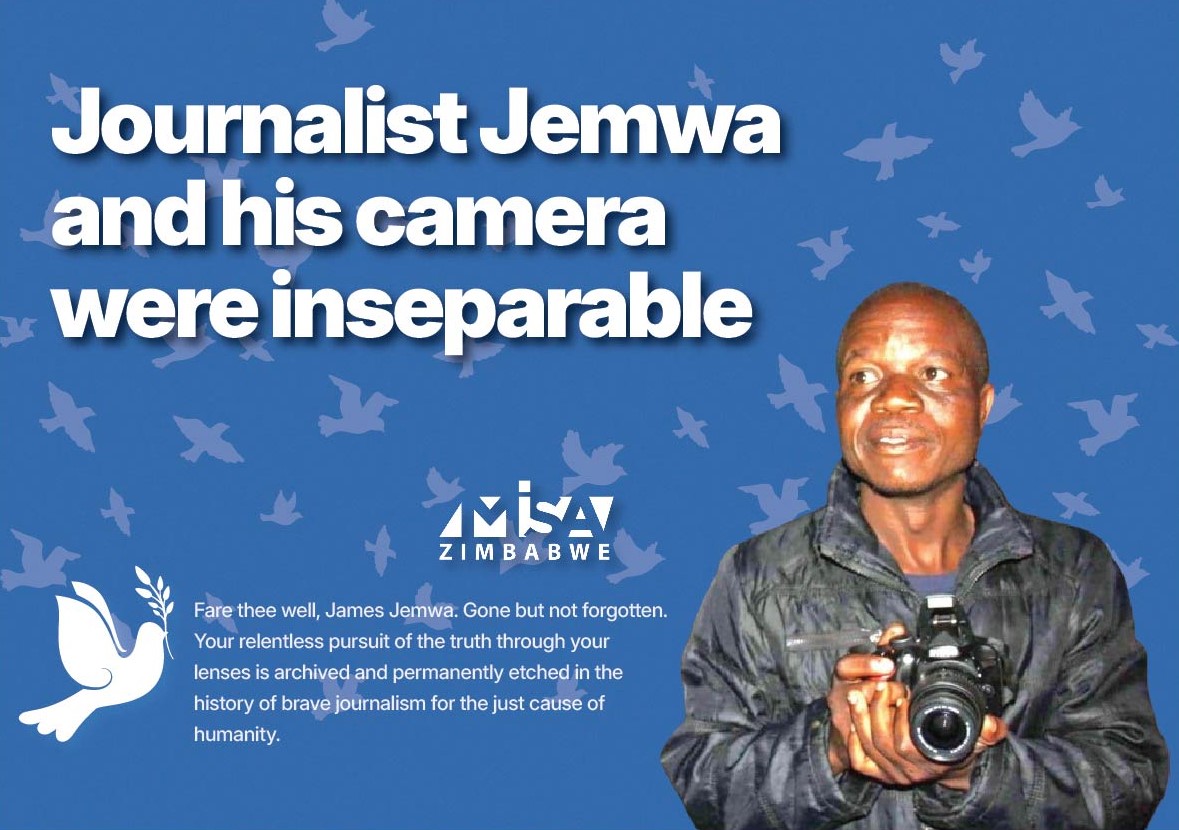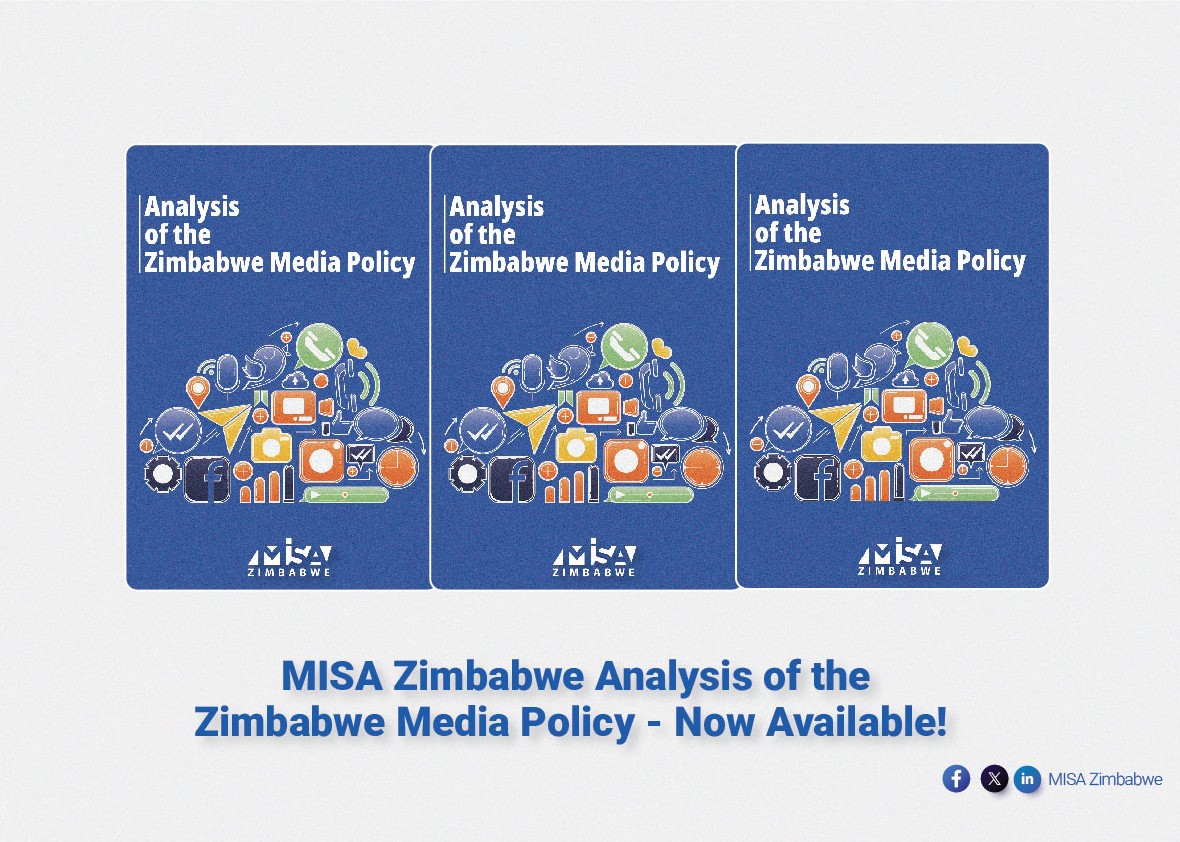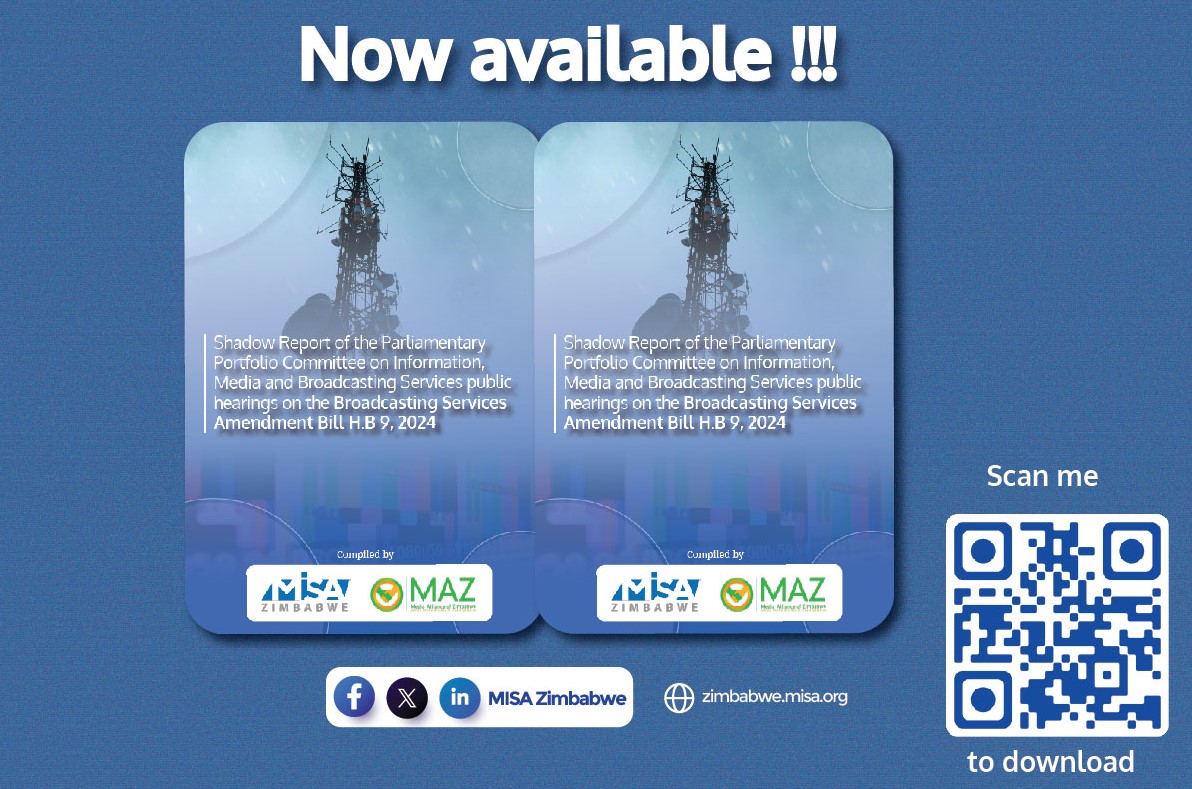 On the occasion of the 2016 World Press Freedom Day and 25th Anniversary of the Windhoek Declaration MISA-Zimbabwe notes with great concern government’s lethargy in implementing media law reforms almost three years after enactment of Zimbabwe’s 2013 Constitution.
On the occasion of the 2016 World Press Freedom Day and 25th Anniversary of the Windhoek Declaration MISA-Zimbabwe notes with great concern government’s lethargy in implementing media law reforms almost three years after enactment of Zimbabwe’s 2013 Constitution.
This is despite repeated commitments, notably by the Ministry of Media, Information and Broadcasting Services, to institute the requisite reforms in line with the new constitutional dispensation and as buttressed by the findings and recommendations of its Information and Media Panel of Enquiry (IMPI).
The ministry is on record saying it would set the ball rolling in that regard by convening an all stakeholders consultative meeting in January 2016 to ensure that key players in the information and media industry input into the policy and law reform process.
Five months into 2016, there is deafening silence as to when the proposed meeting will be held exposing government’s insincerity in implementing envisaged media reforms.
Against this backdrop, authorities continue to use the discredited AIPPA, to license and regulate the media; the Official Secrets Act (OSA) to broadly embargo information held by public bodies and the Broadcasting Services Act (BSA), to hinder free establishment of radio stations. The Censorship and Entertainment Controls Act (CECA), also continues to be used to censor free artistic expression; the CODE to criminalise media work and citizens’ right to free expression.
In addition, the Interception of Communications Act (ICA) also remains in the country’s statutes posing serious threats to the privacy of citizens’ electronic communications.
Meanwhile, government continues to mix its commitment and constitutional obligations to reforming the media with threats to introduce harsh measures to deal with the independent media. The government’s threats against media freedom also has a chilling effect on citizens right to free expression and access to information online as evidenced by its plans to enact laws that will hinder online activity under the guise of preventing cyber crimes.
This flies in the face of tenets of constitutional democracy, enjoyment and enforcement of fundamental human rights as enshrined in Zimbabwe’s Bill of Rights .
Our 2016 theme: Free and Secure Online Expression and Access to Information in Zimbabwe, coming on the back of the universal theme: Access to Information and Fundamental Freedoms, is thus coined as a reminder to government of its constitutional obligations, international laws, treaties and conventions that guarantee fundamental human rights of which Zimbabwe is state party.
MISA-Zimbabwe therefore urges the government to:
- Urgently implement law reforms to entrench constitutional democracy and retain foreign direct investment critical to halting the worsening economic crisis that has negatively affected media operations.
- Give due consideration to resolutions of the April 2016 Media Law Reforms Indaba and the IMPI report in undertaking the envisaged media law and policy reforms.
- Refrain from threatening the media as that has potential to trigger extra-legal violation of media freedom by political activists and other non-state actors.
- Underpin formulation of the cyber security framework in sync with national and regional principles that protect privacy of communication, private property and the right of all citizens to freedom of expression, media freedom and access to information.
- Initiate a much more structured digitisation public awareness campaign that uses people-centric platforms to ensure citizens know what exactly will be at stake including the benefits of digital migration.
- Ensure citizen participation in the transparent and democratic appointment process for the ZBC board, while securing and guaranteeing its independence and accountability in carrying out its public service mandate.












